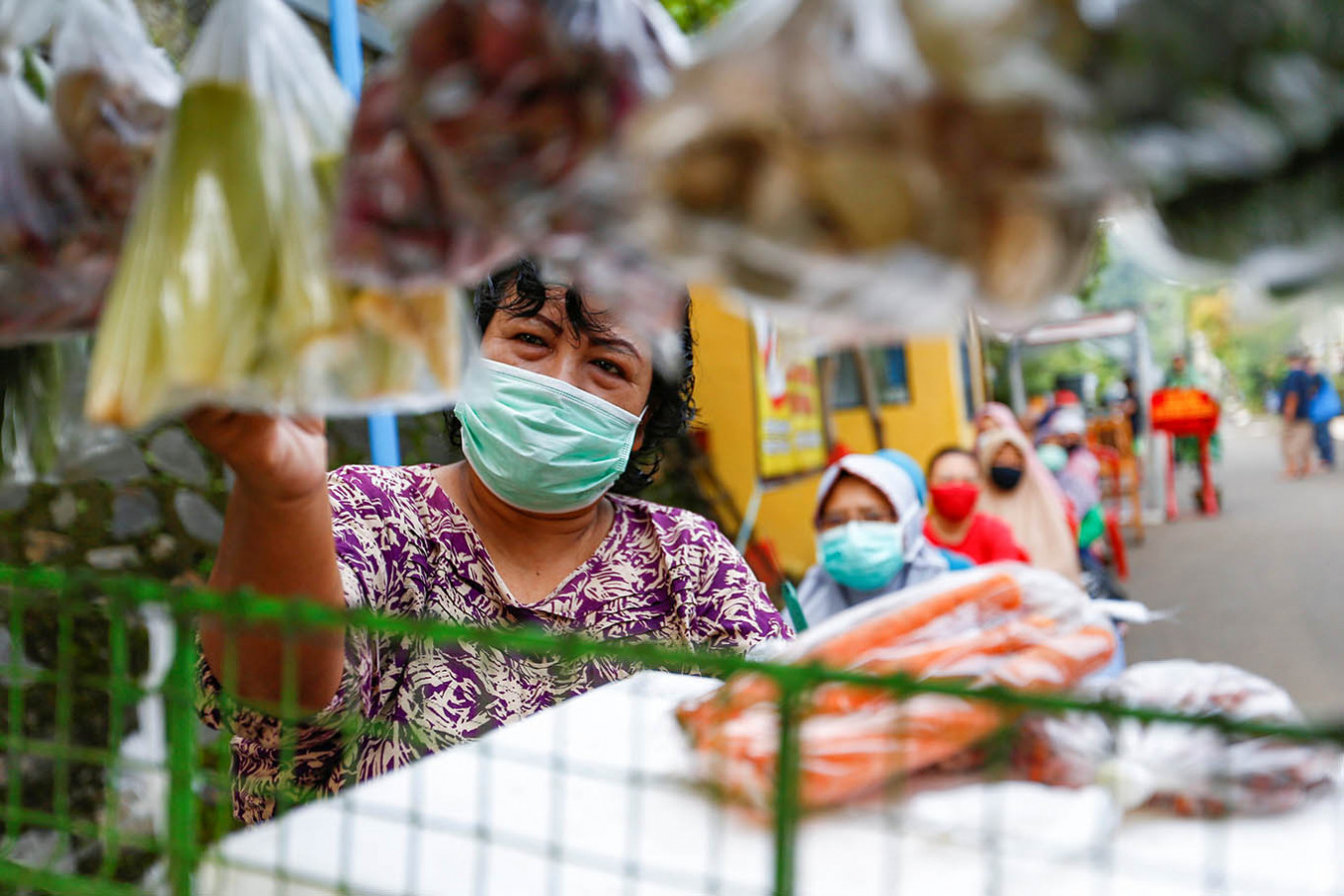Popular Reads
Top Results
Can't find what you're looking for?
View all search resultsPopular Reads
Top Results
Can't find what you're looking for?
View all search resultsIn Greater Jakarta, vegetable vendors see more customers during pandemic
As most businesses in Greater Jakarta are facing a major downturn during the COVID-19 crisis, small vegetable vendors and tukang sayur (mobile vegetable sellers), who typically operate in residential areas, have seen more customers buying their products.
Change text size
Gift Premium Articles
to Anyone
As most businesses in Greater Jakarta are facing a major downturn during the COVID-19 crisis, small vegetable vendors and tukang sayur (mobile vegetable sellers), who typically operate in residential areas, have seen more customers buying their products.
“At first I was concerned that my kiosk would see fewer customers due to the stay-at-home order,” said Yunaiti, 35, who runs a vegetable kiosk in Ragunan, South Jakarta.
“But that turned out not to be true. I am able to sell all of my vegetables now. It is a blessing for me."
Yunaiti is one of the small-scale vegetable sellers in the capital who never expected to see an upturn in their business when many people are staying at home after the city imposed large-scale social restrictions (PSBB) on April 10.
Many residents are reluctant to go to traditional markets located far from home just to buy vegetables, fearing that they might contract the disease along the way. They prefer to go to nearby vendors.
As a result, Yunaiti booked around Rp 3.5 million (US$233) in revenue per day in April, an increase compared from around Rp 2.5 million per day before the outbreak.
She suspected that the longer operating hours of her kiosk during the epidemic might have also contributed to the increasing number of customers.
“I run my vegetable kiosk until around 8 p.m. while most of the traditional markets can only serve customers until 5 p.m. during the PSBB. I think that is another reason why people keep coming to my shop,” she said.
Ucok Amin, a 50-year-old vegetable seller in Tanah Baru subdistrict, Bogor city, took a different approach to market his products during the PSBB in Bogor, which has been in place since April 15.
He now offers a delivery service for vegetables and meats to cater to the needs of people in self-isolation. People can send him their shopping list via popular messaging app WhatsApp at least a night before the delivery.
“I or my nephew will deliver them before 10 a.m. every day by motorcycle. But we only serve customers who live within a 2-kilometer radius from our kiosk to ensure efficiency and on-time delivery,” Ucok said.
“This strategy has been such a success. I earn daily revenue around Rp 3 million now, much better than the Rp 2 million per day before the PSBB,” he added.
Hosianna Evalita, a 30-year-old economist in Bintara, Bekasi city, said she restrained herself from going to traditional markets and instead bought vegetables from a nearby vendor to avoid possible crowds at traditional markets.
That is also the case for Titik, a 53-year-old mother in Buaran, East Jakarta, who buys vegetables from tukang sayur more frequently now.
“Before the epidemic, I used to go to the nearby Perumnas Klender Market every two days, but now I only go there once a week," she said. "I don’t mind spending extra money to buy vegetables [from tukang sayur] as long as it protects me better from the disease. Not to mention it is more convenient, too."
The Food and Agriculture Organization (FAO) representative in Indonesia, Stephen Rudgard, has urged the public to buy food from local small businesses to support their livelihoods during the COVID-19 crisis and to appreciate smallholder farmers.
“It is time for us to pay attention to one another and to appreciate the people at the frontline in this pandemic who produce our food," Rudgard said in a statement.










